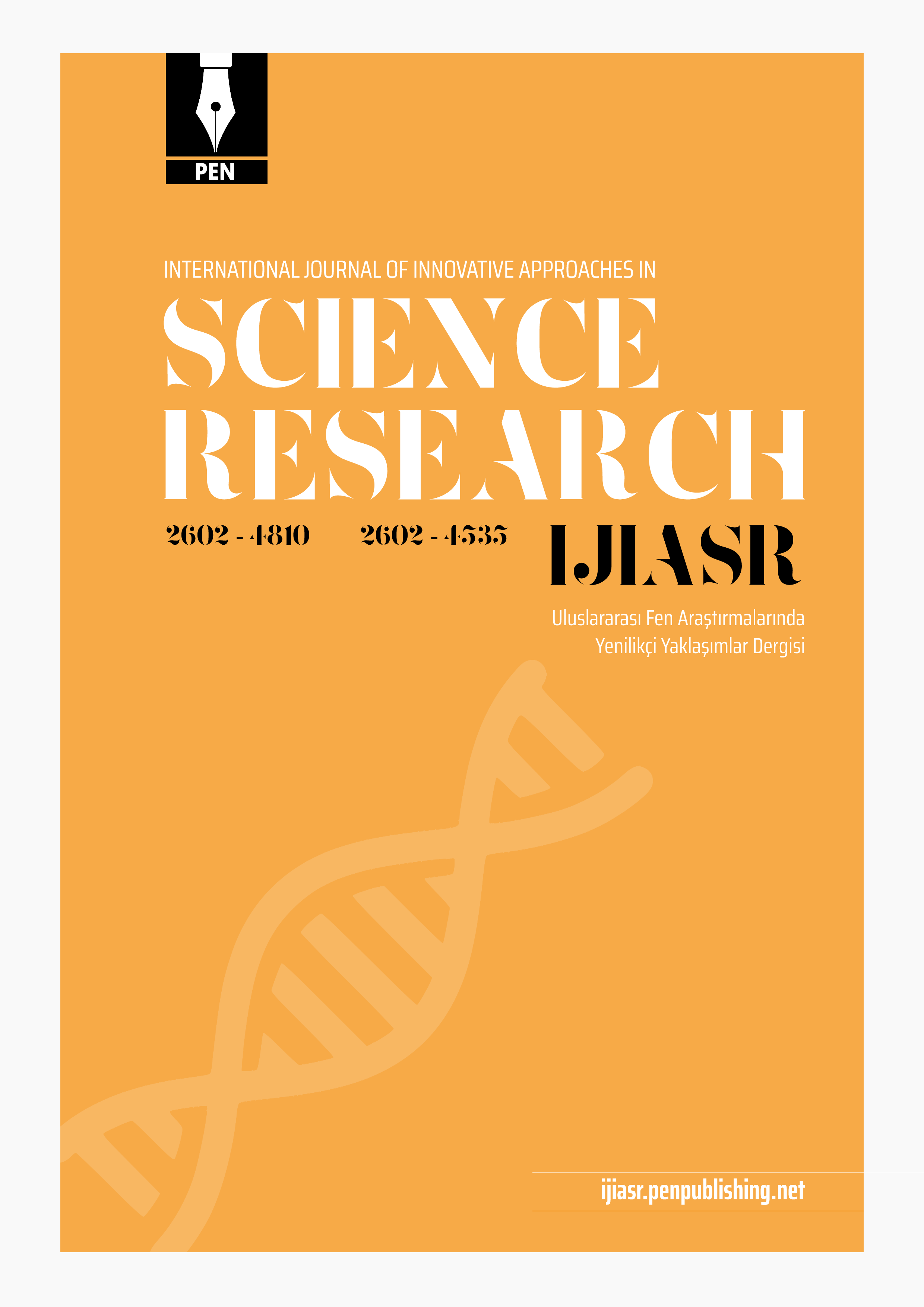
Uluslararası Fen Araştırmalarında Yenilikçi Yaklaşımlar Dergisi
Yazarlar: Tuğçe Özsan Kılıç, Timur Tongur , Ahmet Naci Onus
Konular:-
DOI:10.29329/ijiasr.2021.414.2
Anahtar Kelimeler:: Artichoke,Carotenoid,Chlorophyll,Proline
Özet: Globe artichoke [Cynara cardunculus var. scolymus (L.) Fiori], a member of the Asteraceae family, has been known since ancient times. Edible parts of this valuable vegetable are rich in antioxidants and polyphenols as well as possessing healing properties against certain diseases. When the life cycle of plants is taken into consideration, the processes which are highly affected by environmental conditions are photosynthesis and cell growth. Chlorophyll level is known as a good indicator of the photosynthesis of plants. Carotenoids, one of the important functions of which protects chlorophyll from photo-oxidation, can prevent the destruction of chlorophyll. Therefore, chlorophyll and carotenoids play an important role in photosynthesis and the protection of photosynthetic pathways against harmful free radicals. The proline concentration present in various plants is increased in many different stress conditions, such as cold, temperature, salinity, drought, UV, and heavy metals, thus, providing better tolerance to stress conditions. The aim of the present study was to comparatively evaluate the proline, chlorophyll (a and b), and carotenoid contents of the young and mature leaves of two OP cultivars (Bayrampaşa and Sakız) based on different growing seasons. Obtained results demonstrated that there were differences between two OP artichoke cultivars based on the growing season and young and mature leaves with regards to proline, chlorophyll (a and b), and carotenoid contents. Findings revealed that proline and chlorophyll b levels in autumn were quite promising, while in terms of chlorophyll a and carotenoid levels winter was prominent. Regarding the young and mature leaves, high proline and chlorophyll a levels were found to be dominant in young leaves. On the other hand, chlorophyll b and carotenoid were more accumulated in mature leaves. Turkey has several other globe artichoke cultivars and the findings of the present study may play a supportive role in determining proline, chlorophyll (a and b), and carotenoid contents for combating several environmental stress factors.